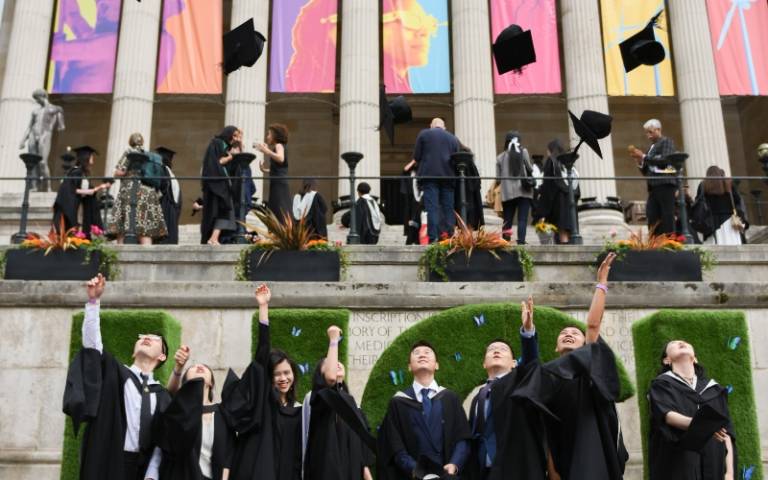Meet Shabin Namban, Global Prosperity MSc student (2020-21) and recipient of the Commonwealth Shared Scholarship.

Spotlight created during Shabin's time as a current student at the IGP
Why did you choose to study at the Institute for Global Prosperity and what were you doing before you joined us?
I have received an interdisciplinary undergraduate degree with an Economics Major and a Development and Sustainability Minor from Azim Premji University, India. Upon undergraduate studies, I joined Pratham Education Foundation - an NGO working to improve the quality of education in India at the capacity of Research Manager for Kerala State. Further, I developed my management skills by doing a postgraduate programme in Development Leadership from the Indian Institute of Development Management, India.
My education and working in the field have reinforced my conviction in a multi-pronged approach to achieve prosperity. This strong desire to understand the complexities of society in a systematic manner to address the development challenges of the society and contribute to inclusive prosperity motivated me to pursue the Global Prosperity MSc at UCL. This course enabled me to develop the necessary knowledge, skills, and attitude for becoming an expert in identifying and mapping the development of society in depth; and generating prosperity.
Can you tell us about your experience around the Commonwealth Masters Scholarship and how it has helped you?
The Commonwealth Masters Scholarship provided me with a brighter academic experience at UCL. The scholarship platform offered multiple personal and skill development programmes and financial stability to pursue the master's programme, which further developed my academic ability as well as me as a person. Moreover, I have received opportunities to interact with commonwealth scholars across different universities and share ideas and thoughts with them.
What do you enjoy most about studying with the IGP?
The MSc in Global Prosperity at UCL contextualizes different concepts to socio-economic and political needs of the global and local contexts. The academic freedom to choose electives from other UCL departments is one of the perks of learning this course. The most interesting part of the courses is that the course enabled me to understand the value creation and mobilization of the groups of communities to address the socio-economic challenges through different cases studies. The academic explorations are a blend of practical and theocratical approaches which, I believe, is a perfect knowledge tablet for a person who believes in making a dynamic impact in society.
Are there any topics or areas that you find particularly interesting?
IGP courses introduced different system models and particular approaches to identify the challenges and create comprehensive solutions towards a prosperous society. These models, I believe, will be helpful for me in future to make an impact in society.
What does prosperity mean to you?
I believe there is no definite definition for prosperity. The prosperity adapts different necessary needs from food to the internet at different period. The prosperity is meeting the needs of individuals, society and ecosystem; and having the opportunity and accessibility to achieve those needs with equal dignity for each participant in the biosphere.
What are your plans for after graduation?
I would like to work with the third sector and engage in public discourse to contribute towards the prosperity at grassroots, institutional, and policy levels. Later, I aim to do an extensive research study considering my desire to make changes towards an inclusive and prosperous society with a focus on the role of institutions in particular.
What advice would you give to new IGP students and to those thinking of applying?
IGP offers a plethora of ideas and skills to analyse prosperity issues in an intellectually rigorous manner that would allow for a long-lasting impact in the real world. For a student, it is a personal journey where one could explore the prosperity concepts and their complexity. Hence the extension of the learning of prosperity IGP offers is limitless with the available resources and selfless support of the academic team and classmates. I suggest any student pursuing the course make the best use of the available resources and academic help that the course and university offer. Moreover, the experience can only be complete with the clubs and societies involvement at UCL. So, the maximum participation of clubs makes university life more enriching.
Do you have a recent book, film or podcast that you would recommend?
Planet of Slums by Mike Davis and Winners Take All: The Elite Charade of Changing the World by Anand Giridhardas put forth interesting perspectives to readers, especially to the ones who would like to make an impact in the society through third sector and policies. I also recommend the podcast Power Corrupts by Brian Klass. This talk details the democratic politics of the current century.
 Close
Close

